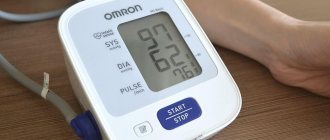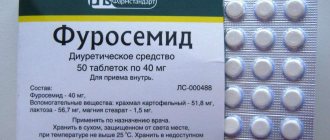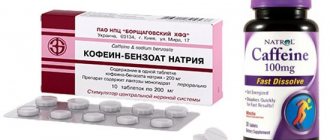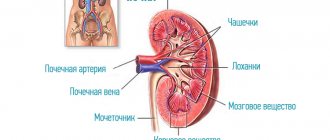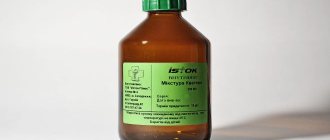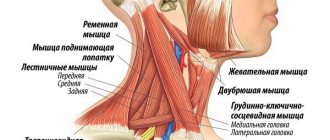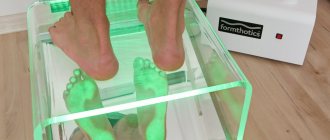Safe and effective medications for low blood pressure (hypotension).
May 2, 2021
17521
4.8
1
Content
- How to choose medications for low blood pressure?
- Caffeine
- Ekdisten
- Gutron
- Caffeamine
- Apilak
With hypotension, a person feels dizziness, malaise and deterioration in general well-being. Low blood pressure is a condition when blood pressure numbers fall below normal values.
We speak of low blood pressure when its value is about 90/60. Some people feel great with this pressure (no treatment is required), while others experience unpleasant symptoms. If you feel unwell with hypotension, be sure to consult a doctor to determine the cause of this condition and get the right treatment.
Low blood pressure: causes and symptoms
Hypotension is usually said to occur when blood pressure remains below the limit of 100 at 59 mm Hg. Art. For a certain period of time. The disease is accompanied by a decrease in blood circulation in the body. As a result, internal organs experience a lack of oxygen and nutrients. The structures of the heart and brain are especially affected.
If blood pressure is kept below 75 to 45 mm Hg. Art., this is moderate hypotension. Severe hypotension occurs when blood pressure drops to 65 to 39 mmHg.
The following triggers can cause low blood pressure in adults:
- dehydration as a result of poisoning, overheating, increased sweating;
- loss of large amounts of blood;
- Vascular dystonia;
- endocrine diseases;
- severe anemia;
- exacerbation of allergic reactions;
- Low blood pressure may be associated with heart disease;
- infectious and inflammatory diseases;
- decreased vascular tone as a result of stress, overwork, hot weather.
With low blood pressure, the following unpleasant symptoms occur:
- dizziness and pressing, pressing pain in the back of the head, forehead, temples;
- persistent weakness, drowsiness, lethargy;
- nausea and repeated vomiting;
- deterioration of hearing and visual acuity;
- lack of coordination;
- changes in heart rate;
- pale skin.
If you experience any of these symptoms, contact your doctor. Additional tests may be needed to determine the cause of the abnormal condition.
How to choose medications for low blood pressure?
Medicines for hypotension are rarely prescribed. Usually, to improve the condition, it is enough to change your lifestyle: adjust your daily routine, eat right, drink more fluids and increase the amount of salt.
If drug support for low blood pressure is needed, drugs that increase the volume of blood circulating in the body or drugs that spasm peripheral arteries are prescribed. This helps increase blood pressure because blood will flow through narrower vessels under greater pressure.
All medications for low blood pressure are prescribed only by a doctor, having previously ruled out pathological causes of low blood pressure. Usually, drugs of synthetic or plant origin are used - tonics and vasoconstrictors.
Here are the safest and most effective pills for low blood pressure.
Hypotension and features of its treatment
If a patient consults a doctor with complaints of low blood pressure and malaise, he will need to have an ECG, ultrasound of the abdominal cavity, blood vessels, heart and brain, take biochemical and general blood tests, and examine blood sugar levels. Consultation with a cardiologist, endocrinologist, or therapist is required. Based on the examination results, the doctor determines further treatment tactics individually for each patient.
Most blood pressure pills contain caffeine.
Don't overindulge in caffeine as it can have the opposite effect and make your symptoms worse.
Nootropic drugs can increase body tone, reduce the oxygen demand of organs and restore their functions. Brain stimulating pills are also prescribed.
Caffeine
This drug is sold both in tablets and in a solution for subcutaneous administration. Caffeine is a natural nervous system stimulant that stimulates the nervous system, increases vascular tone, improves blood circulation and increases blood pressure. “Caffeine” is prescribed for moderate hypotension, decreased performance, general malaise, vascular headaches, and drowsiness.
Read also: Top 10 best blood thinners Blood thinners
It is believed that “Caffeine” is a safe medicine, but there are contraindications to its use: the body’s sensitivity to its components, age under 12 years, severe heart disease (cardiosclerosis, coronary artery disease, heart attack), mental disorders, hypertension, arrhythmia, insomnia, depression. It is prescribed with caution to those who suffer from glaucoma and other vision problems.
Side effects from taking Caffeine include rapid heartbeat, sweating, nausea, trembling, and dizziness. After the effects of caffeine wear off, a person may experience weakness, inhibition of the nervous system, or general malaise.
Caffeine
JSC "Tatkhimfarmpreparaty", Russia; Borisov medical plant drugs, Belarus; PrJSC Pharmaceutical Company “DARNITSA”, Ukraine; Novosibkhimpharm OJSC, Russia; JSC Dalkhimfarm, Russia; "Moskhimfarmpreparaty" named after. N. A. Semashko, Russia; PJSC Scientific and Production Center "Borshchagovsky Chemical Plant", Ukraine
A drug whose range of uses includes: Diseases accompanied by depression of the central nervous system, functions of the cardiovascular and respiratory systems (including poisoning with opioid analgesics, infectious diseases), cerebral vascular spasms, decreased mental and physical performance, drowsiness.
from 33
5.0 1 review
645
- Like
- Write a review
Ekdisten
This is a herbal medicine that comes in the form of tablets and powder sachets. The active substance of the drug is a plant extract from the rhizomes of Leuzea safflower. "Ecdisten" improves overall metabolism, vascular tone, stimulates protein synthesis, and has a weak anabolic effect.
This drug is prescribed for low blood pressure, general asthenia, to improve performance and for weather dependence.
Contraindications include: age under 18 years, allergies to drug components, hypertension, nervous disorders with agitation, epilepsy, stomach ulcers. Ecdisten should be prescribed with caution to those with diabetes or thyroid disease. Alcohol is contraindicated while taking Ecdisten.
Ekdisten
Wifitech/Vilar, Russia
The drug Ecdisten is used in adults as a tonic: asthenodepressive syndrome (associated with a weakening of protein synthesizing processes: during prolonged intoxication, infections), neurasthenia. And also as part of combination therapy - arterial hypotension, intense training (dysfunction of the cardiovascular system, especially with pronounced signs of myocardial overstrain and increased protein catabolism), as a drug that increases speed and strength qualities during the period of preparation for competitions.
257
- Like
- Write a review
What pills are there for hypotension?
What can be taken for low blood pressure is decided only by a doctor. Taking into account the patient’s condition, concomitant diseases, age, the specialist chooses which drug will be effective in a given situation.
In case of low blood pressure, drugs from different groups based on chemical and herbal components can be prescribed. The tablets can be taken with formulations according to traditional medicine recipes.
The most effective tablets based on herbal ingredients are Eleutherococcus, Lemongrass, and Ginseng. They stimulate the central nervous and cardiovascular systems, give vigor, increase blood pressure, reduce drowsiness and fatigue.
Such drugs as “Etimizol”, “Saparal”, “Apilak”, “Pantocrine”, produced in the form of tablets and capsules, have tonic properties. They add vitality, relieve symptoms of fatigue, improve concentration and memory.
Analeptics (Centedrin, Cordiamin) will help cope with the symptoms of low blood pressure by stimulating the vaso-respiratory center of the medulla oblongata.
Nootropic drugs (Piracetam, Pyridit, Pantogam, Phenibut) activate metabolic processes in the central nervous system and improve blood circulation. They are available in tablet form, so you can take long courses at home.
Vitamins help cope with the negative effects of hypoxia. They increase physical and emotional endurance, regenerate the body after stress, improve blood counts and increase the body's resistance.
What other medications are prescribed for low blood pressure? When a drop in pressure is associated with vegetative dystonia, anticholinergics are prescribed. Adrenergic tablets increase blood pressure by dilating blood vessels and improving circulation. Analeptics help stimulate the functioning of the heart, brain and blood vessels.
"Citramon"
When a decrease in blood pressure is accompanied by a severe headache, you should take a Citramon tablet. The active components of the drug relieve inflammation, relieve pain, dilate blood vessels, improve blood flow, and reduce drowsiness.
You can take 1-2 tablets after meals. Re-downloading is possible after 7 hours. Tablets should not be taken by patients with severe anemia, gastrointestinal ulcers, hypertension, liver and kidney diseases.
"Caffeine"
Caffeine tablets are prescribed to increase blood pressure. They activate mental excitability, improve mood, relieve fatigue, increase concentration, and reduce pain.
Tablets are taken three times a day, regardless of meals. It is not recommended to take the drug before bedtime. The dosage for children over 12 years of age and adults is 50-100 mg. The duration of treatment can be several weeks.
"Gutron"
For hypotension, it is recommended to take Gutron tablets. They improve blood circulation, increase vascular tone and relieve unpleasant symptoms accompanying the disease. The drug is prescribed at a dose of 2.5 mg 2 times a day.
Contraindications: serious eye diseases, arterial hypertension, urinary tract and prostate diseases.
"Ekdisten"
The active ingredient of the drug "Ecdisten" is obtained naturally, so even a long course of treatment does not affect the liver. Natural ingredients that increase blood pressure, have tonic properties and improve metabolic processes in the body.
The drug is approved for use from 18 years of age. It is recommended to take 1-2 tablets after meals. Duration of treatment is 2-3 weeks. Contraindications: epilepsy, hypertension, peptic ulcer, insomnia.
"Rantarine"
The drug "Rantarine" based on reindeer antler extract will help raise blood pressure. Horns are horns that have not had time to ossify. They contain many trace elements and amino acids. "Rantarine" improves brain function, tones the nervous system, normalizes blood pressure, and increases the body's resistance to various adverse effects.
Tablets are taken 2-3 times a day 35 minutes before meals. Duration of therapy is 2-4 weeks.
The drug should not be used by people with severe heart failure and cardiac arrhythmia, atherosclerosis, epilepsy, cancer, kidney or liver diseases.
"Heptamil"
Heptamyl tablets will help raise blood pressure and eliminate unpleasant symptoms. The active ingredient of the drug is aimed at increasing the tone of the heart and vascular system and improving blood circulation.
The drug is taken in the form of two tablets (100 mg) 2-3 times a day. The drug is prescribed with caution in the presence of arrhythmias and other heart pathologies.
"Simptol"
The drug "Symptol" normalizes low blood pressure, increases the volume of circulating blood and relieves inflammation. For hypotension, it is recommended to drink 30-40 drops of a 10% solution of the drug three times a day.
Contraindications are atherosclerosis, vascular spasm, arterial hypertension, severe diseases of the endocrine system and heart.
"Apilak"
The drug "Apilak" based on royal jelly contains many micro- and macroelements and amino acids. Improves metabolic processes, gives vigor, increases blood pressure and strengthens the immune system. Often tablets are prescribed for hypotension and nervous disorders. Mature patients are prescribed one tablet three times a day. Keep the tablet under your tongue until completely absorbed.
Contraindications: children under 18 years of age and allergies to bee products.
"Cordiamin"
Cordiamine stimulates the central nervous system, tones and constricts blood vessels, causing an increase in blood pressure. The recommended dose of drops is dissolved in water. The dose for adults is 75 drops, divided into three doses.
You should not take the drug if you have epilepsy, increased body temperature, or increased blood pressure.
"Eleutherococcus"
Among the drugs prescribed to increase blood pressure, Eleutherococcus ranks first. The plant component, in addition to ascorbic acid, leads to the normalization of the cardiovascular system. Signs of fatigue are reduced, performance increases and the body's resistance to adverse factors increases.
The drug is taken 25 minutes before breakfast and lunch, 1-2 tablets. Duration of treatment is from 2 to 4 weeks. The course is repeated every other week.
"Midodrine"
Midodrine constricts blood vessels and increases blood pressure. The dose is 2.5 mg 2 times a day. For a long course, the dose can be reduced to half a tablet.
Midodrine, like all drugs from the group of adrenergic agonists, has contraindications: increased intraocular pressure, arterial hypertension, diseases of the thyroid gland and prostate.
"Glycine"
“Glycine is a well-known drug that improves metabolic processes in the brain and activates the central nervous system. It increases resistance to stressful situations, improves mood and sleep quality, and reduces symptoms of hypotension.
The ingredients that increase blood pressure are harmless, so the drug can be prescribed during pregnancy and childhood. Place the tablet under your tongue and hold it there until it dissolves. Adults are prescribed one tablet 2-3 times a day. The duration of treatment is one month.
"Piracetam"
Piracetam is a nootropic drug. The tablets improve metabolic processes and blood circulation in all structures of the brain, eliminate the effects of hypoxia, and improve the activity of the brain, heart and blood vessels.
The tablets should be eaten whole, without chewing, with plenty of water. Adults can drink up to 160 mg of the drug per day in 3-4 doses. Treatment lasts up to two months.
Contraindications are cerebrovascular accidents and severe kidney pathology.
Gutron
This drug for the treatment of hypotension is available in drops and tablets and is sold by prescription. The active substance of the drug is midodrine (a group of adrenergic agonists that tone blood vessels).
“Gutron” is prescribed for hypotension, orthostatic hypotension (a sharp decrease in pressure when a person takes a horizontal position), and for weather dependence. The medicine moderately constricts blood vessels, improves their tone, which increases blood pressure and removes blood stagnation in the veins.
Contraindications include: high blood pressure, overactive thyroid gland, severe kidney disease, urinary retention and prostate adenoma.
When taking Gutron, the following side effects are possible: skin rash, tachycardia, nausea. This drug should not be taken with alcohol.
Gutron
Takeda Pharmaceutical Company, Japan
Gutron is a remedy for increasing blood pressure, and is also recommended for use in patients with urinary incontinence caused by bladder dysfunction.
from 1950
5.0 1 review
695
- Like
- Write a review
Caffeamine
This drug for increasing low blood pressure is available in tablets and is sold by prescription. Belongs to the group of combined psychostimulants, the active substances are caffeine and ergotamine. “Caffetamine” tones the nervous system and constricts blood vessels.
This medicine is prescribed for migraines, hypotension and intracranial hypertension.
Among the contraindications: allergic reactions to the components of the drug, age under 18 years, atherosclerosis, high blood pressure, pregnancy and breastfeeding, insomnia, glaucoma, psychosis, serious heart disease, advanced age of the patient. Side effects: nausea, increased sweating, agitation, tachycardia.
Caffeamine
KRKA-RUS, Russia
The drug is used for: Vasoparalytic form of migraine;
arterial hypotension; as a means of lowering intracranial pressure in vascular, traumatic and infectious lesions of the central nervous system. from 151
5.0 1 review
467
- Like
- Write a review
Read also How to treat migraine: the best drugs Top 5 best drugs against migraine
Medicines for blood pressure
28.02.2018
Here are some symptoms that may be a signal to measure your blood pressure.
Hypotension is manifested by weakness, fatigue, drowsiness, dizziness , lightheadedness and fainting, poor tolerance of stuffy rooms, motion sickness in transport, headache, and palpitations during physical exertion. If the pressure is not greatly reduced, then a cup of strong tea (not coffee, but tea, green tea at that) will help temporarily relieve unpleasant symptoms.
Hypertension is usually accompanied by headaches, noise in the head, sleep disturbances, decreased mental performance, sometimes dizziness and nosebleeds .
Numerous medications have been developed to combat these diseases.
Atenolol is a drug used for arterial hypertension, heart rhythm disturbances (sinus tachycardia , prevention of supraventricular tachyarrhythmias), neurocircular dystonia of the hypertensive type, for the prevention of angina (with the exception angina ). The drug is prescribed before meals, the dose is determined individually.
The drug is contraindicated in cardiogenic shock, sick sinus syndrome, AV block II-III degree, acute and chronic heart failure, severe bradycardia, arterial hypotension during a heart attack , sinoauricular block, metabolic acidosis (a condition in which the blood has an acidic reaction, caused by a decrease in the concentration of bicarbonate), bronchial asthma , pregnancy (can be prescribed only in cases where the benefit to the mother outweighs the potential risk to the fetus), during lactation and children under 18 years of age.
When taking the drug, symptoms of heart failure, impaired AV conduction, bradycardia, arterial hypotension, a feeling of coldness in the extremities, dyspnea, bronchospasm, apnea, hyperlipidemia, hypoglycemia, dizziness, headache, drowsiness , sleep disturbance, hallucinations, lethargy, fatigue, decreased concentration, nausea , dry mouth , diarrhea, constipation abdominal pain , itching, dermatitis , urticaria , photosensitivity, decreased potency.
Carvedilol is a drug indicated for arterial hypertension, angina pectoris , and chronic heart failure. The drug is taken with a sufficient amount of liquid. For arterial hypertension - 12.5 mg 1 time per day in the first 2 days, then 25 mg 1 time per day. The dose can be gradually increased at intervals of two weeks. For angina pectoris - 12.5 mg 1 time per day in the first 2 days, then 25 mg 2 times a day (maximum - up to 100 mg, divided into 2 doses). For chronic heart failure, start with 3.125 mg 2 times a day for 2 weeks. If well tolerated, the dose can be increased to 6.25 mg 2 times a day, then to 12.5-25 mg 2 times a day.
Carvedilol is contraindicated in AV blockade II-III degree, arterial hypotension, liver failure, severe bradycardia, cardiogenic shock, bronchial asthma , sick sinus syndrome, pregnancy , lactation and children under 18 years of age. It should be taken with caution in case of renal failure, bronchospastic syndrome, chronic bronchitis , diabetes mellitus , emphysema , Prinzmegal angina (a rare type of angina ), hypoglycemia, thyrotoxicosis, occlusive diseases of peripheral vessels , pheochromocytoma, psoriasis , myasthenia gravis, decompensated chronic heart failure.
Side effects include dizziness , loss of consciousness, headache, myasthenia gravis, depression renal dysfunction , edema , leukopenia, thrombocytopenia, abdominal , diarrhea , nausea , dry mouth , constipation, vomiting, increased activity of “liver” transaminases, skin itching, rashes, urticaria , exacerbation of psoriatic rashes, nasal , sneezing, bronchospasm, weight gain.
Angiothesin-converting enzyme (ACE) inhibitors - captopril, lisinopril, perindopril, enalapril, losartan, etc. - are also used to lower blood pressure.
Captopril is a drug effective in the treatment of arterial hypertension, chronic heart failure, impaired left ventricular function after infarction in a clinically stable condition, diabetic nephropathy against the background diabetes mellitus . Captopril provides a moderate hypotensive effect: on average, the recorded decrease in blood pressure is 11/6 mm Hg. Art., while in 90% of cases this effect is achieved when using dosages not exceeding half of the maximum recommended dose.
With combined treatment with capropril and diuretics, an enhanced hypotensive effect is achieved.
The drug is taken one hour before meals. For arterial hypertension, treatment begins with the lowest effective dose of 12.5 mg 2 times a day (rarely with 6.25 mg 2 times a day). Attention should be paid to the tolerability of the first dose within the first hour. If arterial hypotension develops, the patient should be transferred to a horizontal position (such a reaction to the first dose should not serve as an obstacle to further therapy ).
For severe arterial hypertension (diastolic blood pressure 115 mm Hg and above), the drug is combined with other antihypertensive drugs, most often with thiazide diuretics (hydrochlorothiazide - 25-50 mg per day). The dose of the diuretic can be increased at intervals of 1–2 weeks until the maximum dose used in the treatment of arterial hypertension is reached.
Taking capropril (and other ACE inhibitors) is contraindicated during pregnancy , lactation and childhood (under 18 years). It should be taken with caution in case of aortic stenosis , cerebro- and cardiovascular diseases (cerebrovascular insufficiency, coronary heart disease , coronary insufficiency), severe autoimmune connective tissue diseases, suppression of bone marrow hematopoiesis, diabetes mellitus , hyperkalemia, bilateral renal artery stenosis , single artery stenosis kidneys , renal and liver failure, in old age.
When taking the drug, side effects are possible: tachycardia , decreased blood pressure, hypotension, headache, dizziness , feeling of fatigue, impaired renal , hyperkalemia, acidosis, neutropenia, anemia, thrombocytopenia, agranulocygosis, angioedema , "flushes" of blood facial skin , fever, skin rash, itching, photosensitivity, bronchospasm, serum sickness, stomatitis, taste disturbance, nausea abdominal pain , diarrhea , constipation , cholestasis, increased activity of “liver” transaminases.
Enalapril is a medicine used to treat high blood pressure, chronic heart failure, to reduce mortality after heart attacks, and some kidney problems caused by diabetes . The mechanism of action and safety profile of enalapril have been well studied, and its effectiveness has been clinically tested.
Dose selection is carried out by the attending physician ; during therapy regular measurement of blood pressure is necessary. The initial dose for adults is usually prescribed at the rate of 5 mg per day, it is gradually increased until the required clinical effect is achieved. The dosage can be increased to a maximum of 40 mg per day. With a pronounced decrease in blood pressure, the dose of enalapril is gradually reduced.
If monotherapy with enalapril fails to achieve the required level of blood pressure (DM 120–140 mm Hg), combination therapy : enalapril in combination with diuretics or calcium channel blockers.
For children over six years of age, enalapril is prescribed at an initial dosage of 0.08 mg/kg per day (but not more than 5 mg), the maximum allowable dose is 0.58 mg/kg per day (not more than 40 mg).
The drug is contraindicated during pregnancy and lactation. It should be taken with caution in patients with reduced circulating blood . This is associated with a high risk of a sudden and pronounced decrease in blood pressure after using even the initial dose of enalapril. In turn, this can lead to loss of consciousness, ischemia of internal organs, and deterioration of the general condition. While taking the drug, caution should be exercised when performing physical exercise or in hot weather due to the risk of dehydration.
Careful medical supervision is necessary for patients with decompensated chronic heart failure, coronary heart disease , cerebrovascular diseases - sharp decrease in blood pressure can lead to infarction , stroke, and impaired renal .
Taking enalapril may cause side effects, including coughing.
During the treatment period, care must be taken when driving vehicles and engaging in other potentially hazardous activities that require increased concentration and speed of psychomotor reactions ( dizziness , especially after taking the initial dose in patients taking diuretic drugs).
Diuretics are substances that affect water-salt metabolism, help remove sodium ions from the body and, accordingly, lower blood pressure. Diuretics are often used in complex therapy together with other antihypertensive drugs.
Hydrochlorothiazide is a drug, a thiazide diuretic of medium strength. Indicated for arterial hypertension, edematous syndrome of various origins (chronic heart failure, portal hypertension, nephrotic syndrome, chronic renal failure, acute glomerulonephritis), as well as for the prevention of stone formation in the urinary tract.
To lower blood pressure, the drug is prescribed at a dose of 25–50 mg daily. For some patients, an initial dose of 12.5 mg is sufficient, either as monotherapy or in combination with other antihypertensive drugs.
The hypotensive effect appears within 3–4 days; It may take up to 3-4 weeks to achieve optimal effect.
For edematous syndrome (depending on the condition and reaction of the patient), a daily dose of 25-100 mg is prescribed, taken once (in the morning) or once every 2 days. Depending on the clinical response, the dose may be reduced to 25–50 mg once a day or once every 2 days.
The drug is contraindicated in diabetes mellitus , anuria, severe liver failure, Addison's disease, refractory hypokalemia, hypercalcemia, hyponatremia, pregnancy (first trimester), during lactation and in children under 3 years of age. with coronary heart disease , gout, liver , as well as patients simultaneously using cardiac glycosides should take it with caution
Side effects include: anaphylactic reactions, up to shock, cholecystitis , pancreatitis , cholestatic jaundice, exacerbation of gout, electrolyte imbalance, hyponatremia (fatigue, irritability, muscle cramps, confusion), hypochloremic alkalosis, hypokalemia (dry mouth , thirst, arrhythmia, spasm, nausea , vomiting), hypomagnesemia, hypercalcemia, agranulopitosis, thrombocytopenia, leukopenia, anemia, skin rash, urticaria , purpura, necrotizing vasculitis, Stevens-Johnson syndrome, dizziness , headache, arrhythmia, photosensitivity.
Furosemide is a diuretic indicated for severe arterial hypertension, hypercalcemia, edema syndrome in chronic heart failure II-III degrees, liver , kidney , pulmonary or cerebral edema , hypertensive crisis.
The drug is prescribed intravenously (rarely intramuscularly) when it is not possible to take it orally, for example, in case of severe edema syndrome. In this case, the initial dose is 40 mg. Intravenous administration is carried out within 1-2 minutes; in the absence of a diuretic response, a dose increased by 50% is administered every 2 hours until adequate diuresis is achieved. The average daily dose for intravenous administration in children is 0.5–1.5 mg/kg, the maximum is 6 mg/kg. Patients with reduced glomerular filtration and low diuretic response are prescribed in large doses - 1–1.5 g. The maximum single dose is 2 g. Orally, in the morning, before meals, the average single initial dose is 20–80 mg; in the absence of a diuretic response, the dose is increased by 20–40 mg every 6–8 hours until an adequate diuretic response is obtained. For arterial hypertension, 20–40 mg is prescribed. If there is no sufficient reduction in blood pressure, other antihypertensive drugs must be added to treatment.
The drug is contraindicated in acute renal failure with anuria, severe liver failure, hepatic coma and precoma, urethral stenosis , acute glomerulonephritis, stone obstruction of the urinary tract, precomatous conditions, hyperglycemic coma, gout, decompensated mitral or aortic stenosis , increased central venous pressure (above 10 mm Hg), arterial hypotension, acute myocardial infarction pancreatitis , impaired water-electrolyte metabolism. It should be taken with caution in cases of prostatic , hypoproteinemia, diabetes mellitus , stenotic atherosclerosis the cerebral arteries , pregnancy (I, II trimesters), and during lactation.
Indapamide is a drug that has an antihypertensive effect.
The drug is contraindicated in cases of cerebrovascular accident, severe liver failure, diabetes mellitus in the stage of decompensation, gout, pregnancy and lactation.
Indapamide is taken 2.5 mg 1 time per day (in the morning). If there is no effect after two weeks of treatment, the dose can be increased to 5–7.5 mg per day. The maximum daily dose is 10 mg (in 2 doses).
The drug is contraindicated in acute cerebrovascular accident, severe renal and liver , severe forms of diabetes and gout, hypersensitivity to indipamide, pregnancy and lactation.
While taking indapamide, side effects may occur: pain in the epigastric region, nausea , weakness, fatigue, dizziness , nervousness, orthostatic hypotension, hypokalemia, hyperuricemia, hyperglycemia, hyponatremia, hypochloremia.
Spironolactone is a potassium-sparing diurtic prescribed for essential hypertension, edema syndrome in chronic heart failure, conditions in which secondary hyperaldosteronism may be detected, including liver , accompanied by ascites and/or edema ; nephrotic syndrome and other conditions accompanied by edema ; hypokalemia/hypomagnesemia (as an adjuvant for its prevention during treatment with diuretics and when it is impossible to use other methods of correcting potassium levels); primary hyperaldosteronism (Conn's syndrome).
The daily dose for adults with essential hypertension is usually 50-100 mg once and can be increased to 200 mg, while the dose should be increased gradually, once every 2 weeks. To achieve the effect, the drug must be taken for at least 2 weeks. For idiopathic hyperaldosteronism, the drug is prescribed at a dose of 100–400 mg/day, for severe hyperaldosteronism and hypokalemia - 300 mg (maximum 400 mg); for 2-3 doses, for hypokalemia and/or hypomagnesemia caused by therapy - 25-100 mg per day once or in several doses. The maximum daily dose is 400 mg if oral potassium supplements or other methods of replenishing potassium deficiency are ineffective.
For a short diagnostic test for primary hyperaldosteronism, the drug is prescribed for 4 days at 100 mg per day, dividing the daily dose into several doses per day. If the concentration of potassium in the blood while taking the drug and decreases after its discontinuation, the presence of primary hyperaldosteronism can be assumed. Once the diagnosis has been established, as a short course of preoperative therapy for primary hyperaldosteronism, the drug should be taken in a daily dose of 100–400 mg, divided into 1–4 doses throughout the entire period of preparation for surgery . If surgery is not indicated, then spironolactone is used for long-term maintenance therapy , using the lowest effective dose, which is selected individually for each patient.
When treating edema due to nephrotic syndrome, the daily dose for adults is 100–200 mg. For edema syndrome due to chronic heart failure, the drug is prescribed daily for 5 days, 100–200 mg per day in 2–3 doses in combination with a loop or thiazide diuretic. Depending on the effect, the daily dose is reduced to 25 mg. The maximum daily dose is 200 mg.
Side effects include: dizziness , headache, drowsiness, muscle spasm, lethargy, calf muscle cramps, abdominal pain, nausea, vomiting , diarrhea , gastritis , intestinal colic, constipation liver dysfunction , megaloblastosis, thrombocytopenia, agranulocytosis, hyperuricemia, hypercreatininemia, increased urea concentration, hyperkalemia, hyponatremia, metabolic hyperchloremic acidosis, deepening of voice, gynecomastia (in men), menstrual irregularities, dysmenorrhea, amenorrhea, menopausal metrorrhagia, hirsutism, breast carcinoma, urticaria, alopecia, hypertrichosis , acute renal failure.
The drug is contraindicated in hyperkamemia and hyponatremia, severe renal failure, Addison's disease, anuria, pregnancy and lactation, hypersensitivity to any of the components. It should be taken with caution in case of hypercalcemia, metabolic acidosis, AV blockade, diabetes mellitus , diabetic nephropathy, surgical interventions, liver failure, liver , taking medications that cause gynecomastia, menstrual irregularities, enlarged mammary glands , as well as in old age.
There are also frequent cases when people suffer from low blood pressure. This doesn't lead to anything good in the end. Low blood pressure can be acute or chronic. Acute hypotension may be caused by heart failure or excessive bleeding. In the first case, cardiotonic drugs are used, for example strophanthin or korglykon. In the second case, blood . To quickly increase blood pressure, you can use norepinephrine, adrenaline, ephedrine, dopamine and other drugs. In clinical practice, the drugs are administered intravenously and act for a very short period of time. For a longer-lasting effect, you can use, for example, midodrine, regulton, methyrone, etirone, acrinor, angiotensinamide, isoturon, remestip (in clinical settings).
It is more difficult in the case of chronic hypotension, especially when aggravated by heredity. Treatment can take a long time, and medications can be from a wide variety of groups. In general, drugs that tonic the vasomotor center and general tonic preparations of plant origin are prescribed, for example, tinctures of lemongrass, ginseng, zamanikha, aralia, extracts of eleutherococcus, Rhodiola rosea, etc.
to the doctor for too long . The sooner the correct diagnosis is made, the easier the treatment will be.
Published in Medicines Premium Clinic
Apilak
This low blood pressure medicine comes in the form of sublingual tablets and ointment. "Apilak" belongs to the group of natural stimulants for the complex treatment of asthenia, neurotic disorders, and hypotension. Apilak contains a complex of biologically active substances, minerals and vitamins. The active substance is royal jelly. "Apilak" improves vascular tone, tones the nervous system and stimulates the body as a whole.
Contraindications include: allergies to bee products, age under 18 years, Addison's disease, hypertension.
